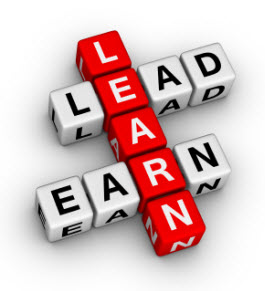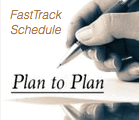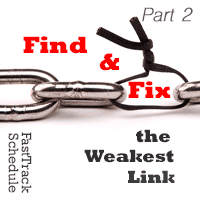 Here’s an interesting concept – let’s make things better now rather than in the future. Why would anyone want to think differently, especially if it might help their career and the work they are doing at this moment? Experiencing success today is better than postponing success until tomorrow, right?
Here’s an interesting concept – let’s make things better now rather than in the future. Why would anyone want to think differently, especially if it might help their career and the work they are doing at this moment? Experiencing success today is better than postponing success until tomorrow, right?
What is “lessons learned”?
Ok, let’s back up for a moment and discuss the concept of lessons learned. The process can vary from PM to PM and organization to organization, but the lessons learned session is basically this: around the time of deployment or project closeout the project manager gathers the project team and, hopefully the customer, together and discusses and documents what went right and wrong on the project. The hope is we learn from our successes and our failures, we take them to our next project in order to improve our project delivery performance and we share this knowledge with others in our organization so as to improve the performance on all projects in the company.
We can’t benefit if we don’t conduct
Sadly, we don’t often take advantage of this type of session. A survey I performed of project professionals in June 2010, found that 57% of respondents indicated that they either never conduct lessons learned sessions or conduct them less than 10% of the time. Only 34% of respondents indicated that they conduct lessons learned sessions more than 50% of the time. Reasons for not performing lessons learned vary, of course. On bad projects, sometimes a PM may avoid the session so as not to receive the negative feedback. Sometimes as soon as the project is over, the entire team needs to disperse and jump on other projects. And sometimes the customer has no interest as they are immersed in the rollout and ramp-up of new system usage and user adoption and likely some internal training. I’m sure there are 50 more reasons, but you get the idea…often it just doesn’t happen.
Lessons learned throughout the project
One nice way to avoid the tendency to skip lessons learned at the end of the project and just move on to other things is to actually make the act of conducting lessons learned sessions an engagement-long process. This serves us in two ways:
- It ensures that we engage our team and our customer and actually discuss the good and the bad on the project so that we do, indeed, learn from our experiences and document that learning so we have a point of reference for our future project work. Plus, we can share this information with our colleagues and broaden the overall benefit of this great learning process.
- It forces us to plan multiple lessons learned sessions during the project – preferably coinciding with key project milestones (like a major deliverable) which is a great time to take a short break and look back at what went right and what went wrong.
The great thing about forcing yourself to schedule lessons learned sessions throughout the engagement is that you get to actually take advantage of that learning on the current project. If the project is experiencing problems and you may be losing some customer satisfaction, you still have a chance to correct it on the current project. And if you’re doing something exceptional that is making the customer very happy with team performance, you’ll find out what that is and make sure that you keep whatever that is going for the rest of the engagement. It may add a little to the project timeline, but it is truly win-win.
Summary
It’s important to conduct lessons learned sessions for every engagement so we can take the positives and negatives and learn from them for future projects and share that knowledge with other PMs and project team members in our organizations. Too many times we reach the end of project and breathe a sigh of relief and move on without stopping to thoroughly analyze how things went on the project we just finished. And if we don’t do that, we’re much more likely to make the same mistakes on the next project. However, by conducting some brief lessons learned sessions throughout each project – after key milestones or phases, for example – we can also benefit on the CURRENT project as well.



